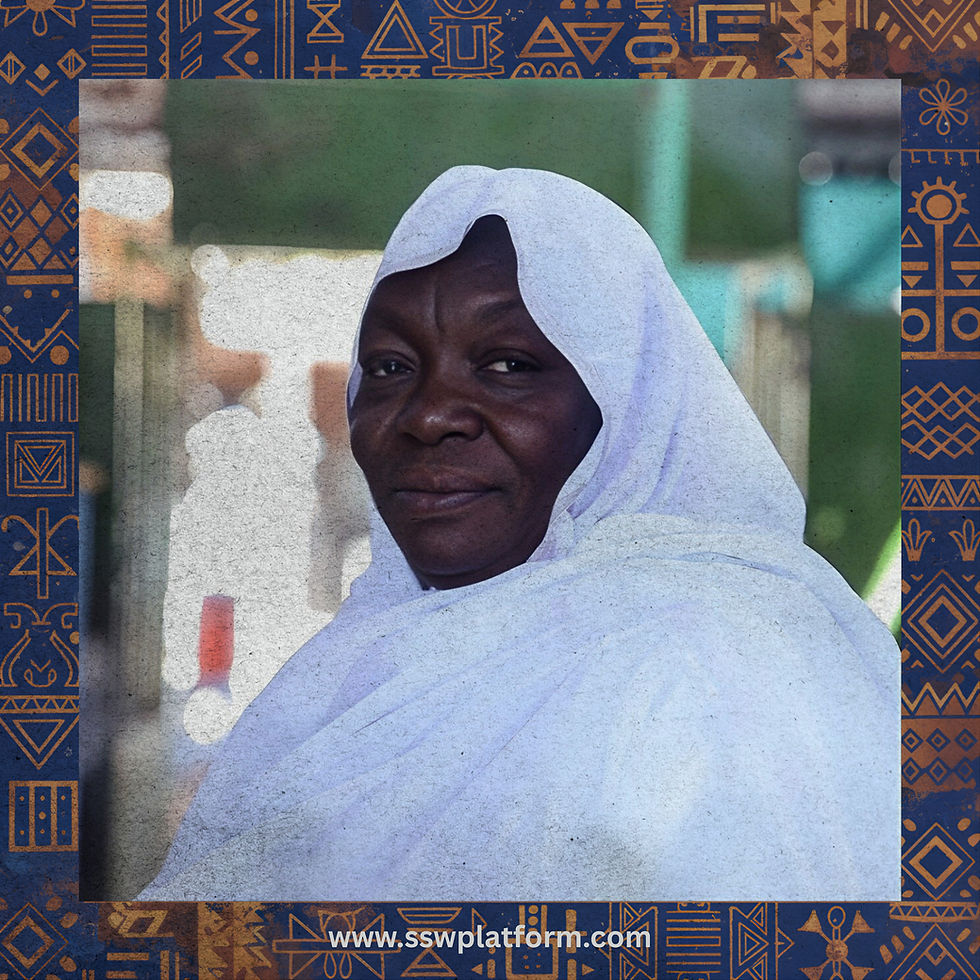Awadiya Koko: Dignity Brewed in the Streets
- Samia Elgallabi

- 7 days ago
- 2 min read

For decades, the pavement was considered the margin of the city, and the women who sat there selling tea were seen as invisible. Awadiya Koko changed the geography of power in Khartoum. She proved that the true pillars of the Sudanese economy are not just in high-rise banks, but seated on low stools under the shade of neem trees.
The Battle Against the "Kasha" Awadiya’s journey began with a simple need: to feed her family. But the streets were hostile. She faced the relentless "Kasha" (police raids), confiscation of equipment, and the stigma that haunted women in the informal sector. Instead of retreating, Awadiya stood her ground. She realized that an individual woman might be broken, but a union of women is a fortress.
From Survival to Strategy She did the unthinkable: she organized the "marginalized." Awadiya founded the Women’s Food and Tea Sellers’ Cooperative, uniting thousands of women under one legal umbrella. She turned "Sit Al-Shai" (the tea lady) from a vulnerable victim into a member of a powerful economic entity with rights, legal protection, and a voice that forced the authorities to listen.
A Global Symbol of Courage Her fight for dignity echoed far beyond the streets of Khartoum. When she stood to receive the International Women of Courage Award in 2016, she wasn't just representing herself; she was carrying the dreams of every woman who ever boiled a kettle to send a child to school. She transformed the tea cup into a symbol of resistance.
The Mother of the Streets Today, Awadiya Koko is not just a seller; she is an institution. She taught us that leadership does not require a suit or an office; it requires the courage to face the sun, day after day, and demand a place in the light.










Comments